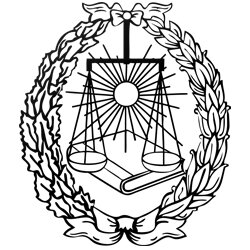Best Appeal Lawyers in Iran
Share your needs with us, get contacted by law firms.
Free. Takes 2 min.
Or refine your search by selecting a city:
List of the best lawyers in Iran
About Appeal Law in Iran
Appeal law in Iran allows individuals to challenge the decision of a lower court in a higher court. The appellate court reviews the lower court's decision for legal errors and ensures that the law was applied correctly in the case. This process provides an avenue for individuals to seek justice if they believe a mistake was made in the lower court.
Why You May Need a Lawyer
There are several situations where you may require a lawyer for an appeal in Iran. Some common reasons include:
- Disagreement with the lower court's decision
- Complex legal issues that require expert advice
- Ensuring that all legal procedures are followed correctly
- Presentation of a strong legal argument in court
Local Laws Overview
In Iran, the legal system is based on Islamic law. The judiciary is independent from the government and consists of different levels of courts, with the Supreme Court being the highest authority. Appeals are typically filed in the appellate court, where a panel of judges reviews the lower court's decision.
Frequently Asked Questions
1. How do I file an appeal in Iran?
To file an appeal in Iran, you need to submit a written appeal to the appellate court within a specified timeframe after the lower court's decision. It is advisable to seek legal assistance to ensure that all procedural requirements are met.
2. What are the grounds for appealing a court decision in Iran?
Grounds for appeal in Iran include legal errors, procedural mistakes, or new evidence that was not considered in the lower court. It is important to consult with a lawyer to determine the best strategy for your appeal.
3. How long does the appeals process usually take in Iran?
The appeals process in Iran can vary depending on the complexity of the case and the workload of the appellate court. It is important to be prepared for a potentially lengthy process and to have realistic expectations about timelines.
4. Can I represent myself in an appeal court in Iran?
While it is possible to represent yourself in an appeal court in Iran, it is highly recommended to seek legal assistance. A lawyer can provide expert advice, prepare a strong legal argument, and navigate the complexities of the legal system on your behalf.
5. What are the potential outcomes of an appeal in Iran?
Depending on the appellate court's decision, the outcome of an appeal in Iran could result in the lower court's decision being upheld, reversed, or modified. It is important to consult with a lawyer to understand the potential outcomes of your appeal.
6. Can I appeal a criminal court decision in Iran?
Yes, it is possible to appeal a criminal court decision in Iran. The appeals process for criminal cases follows similar procedures to civil cases, and it is important to seek legal assistance to ensure that all legal requirements are met.
7. How much does it cost to file an appeal in Iran?
The cost of filing an appeal in Iran can vary depending on the complexity of the case and legal fees. It is important to discuss the costs involved with your lawyer and to budget accordingly for the appeals process.
8. Can new evidence be presented during an appeal in Iran?
Yes, new evidence can be presented during an appeal in Iran if it was not previously considered in the lower court. It is important to discuss the admissibility of new evidence with your lawyer to determine the best strategy for your appeal.
9. What are the deadlines for filing an appeal in Iran?
The deadlines for filing an appeal in Iran vary depending on the type of case and the court's decision. It is important to consult with a lawyer to determine the specific deadlines that apply to your case and to ensure that all procedural requirements are met.
10. Can I withdraw an appeal in Iran?
Yes, it is possible to withdraw an appeal in Iran before the appellate court makes a decision. It is important to discuss your options with your lawyer and to consider the potential consequences of withdrawing your appeal.
Additional Resources
If you are in need of legal advice or assistance with an appeal in Iran, you may consider contacting the Iranian Bar Association or seeking guidance from legal aid organizations in the country. These resources can provide valuable support and information to help you navigate the appeals process effectively.
Next Steps
If you are considering filing an appeal in Iran or require legal assistance with an ongoing appeal, it is important to consult with a qualified lawyer who specializes in appellate law. A lawyer can provide expert advice, represent you in court, and guide you through the appeals process to ensure the best possible outcome for your case.
Lawzana helps you find the best lawyers and law firms in Iran through a curated and pre-screened list of qualified legal professionals. Our platform offers rankings and detailed profiles of attorneys and law firms, allowing you to compare based on practice areas, including Appeal, experience, and client feedback.
Each profile includes a description of the firm's areas of practice, client reviews, team members and partners, year of establishment, spoken languages, office locations, contact information, social media presence, and any published articles or resources. Most firms on our platform speak English and are experienced in both local and international legal matters.
Get a quote from top-rated law firms in Iran — quickly, securely, and without unnecessary hassle.
Disclaimer:
The information provided on this page is for general informational purposes only and does not constitute legal advice. While we strive to ensure the accuracy and relevance of the content, legal information may change over time, and interpretations of the law can vary. You should always consult with a qualified legal professional for advice specific to your situation.
We disclaim all liability for actions taken or not taken based on the content of this page. If you believe any information is incorrect or outdated, please contact us, and we will review and update it where appropriate.
Browse appeal law firms by city in Iran
Refine your search by selecting a city.















